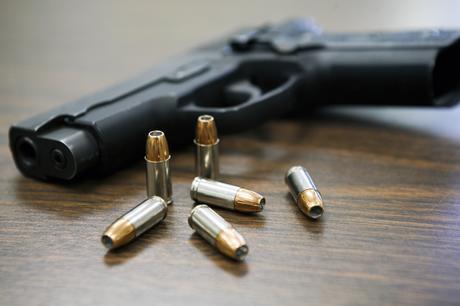
We need to do more about the intersection of guns and domestic violence.
Last week, the Supreme Court ruled that people convicted of domestic violence can no longer own guns. The ruling in Voisine v. United States, the case in question, does much to highlight the serious issue of the intersection of guns and domestic violence — but still may not be enough.
This ruling comes in light of recent, increased efforts to advocate for better gun control legislation in this nation. Perhaps most notably, the Congressional Democrats held a sit-in following the tragic mass shooting in Orlando, which aired on the social media streaming site Periscope after House Speaker Paul Ryan refused to air it on C-SPAN and called it a “publicity stunt.”
But as these conversations about and advocacy for gun control continue, it’s important to remember the role gun violence specifically plays in domestic abuse against women. In the past 25 years, there have been more murders committed with guns between domestic partners than with all other weapons combined. Women in the United States are eleven times more likely to be murdered with guns than women in other high-income countries and when a gun is present in a domestically abusive relationship, it increases the homicide risk for women by 600%.
Federal laws certainly haven’t adequately addressed this problem. Even where legislation exists, the law allows for plenty of loopholes. For example, even though residents need a permit to carry a gun in New Jersey, only 20% of guns used to commit a crime in the state actually came from New Jersey: Because gun laws aren’t federally mandated, it is easy for someone in New Jersey to obtain a gun from nearby Pennsylvania and smuggle it back to New Jersey.
While the Supreme Court’s recent ruling does raise awareness about and advocate for domestic abuse victims, and the outcome of Voisine v. United States is certainly encouraging, it still isn’t nearly enough to turn the tide in the gun violence epidemic rocking the country. The ruling in this case doesn’t do enough to advocate for women who have survived domestic abuse, let alone prevent such violence from happening. It doesn’t really add much to the gun control debate at large — it’s not enough to effectively stop school shootings or hate crimes; it’s not enough to get guns out of the hands of people who shouldn’t be anywhere near them. It won’t get assault rifles off the streets and it won’t do a thing to ensure that the NRA doesn’t continue lobbying for more loopholes in federal gun laws.
As long as guns are easily accessible, domestic abusers can and will still get their hands on them. Ultimately, what we really need is a bigger conversation about the prevalence of guns in a society that has progressed beyond the days when they were needed for a militia. We need to ensure that the stories of the rising number of gun violence victims aren’t forgotten and we need to join forces as a nation to demand more reforms from a government that is seemingly content with letting such deaths slide. While we should celebrate progress, like this case, it’s crucial to remember that it will take far more effort to truly expect change.

